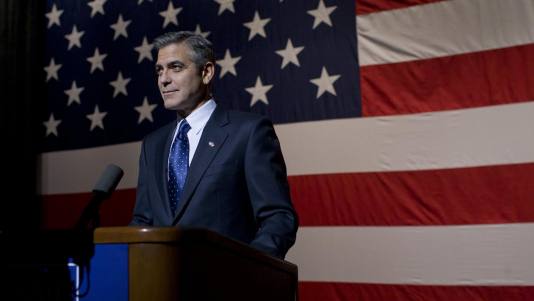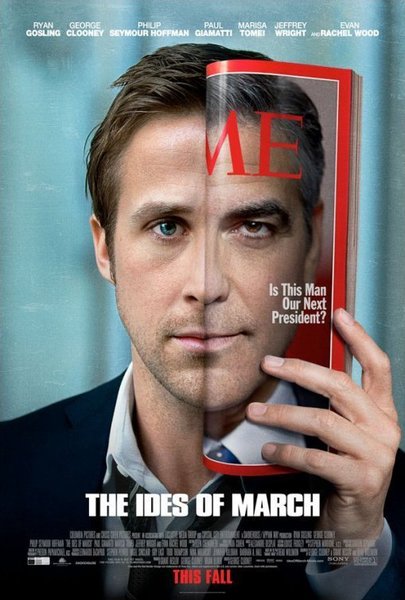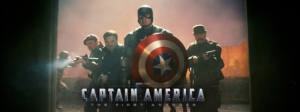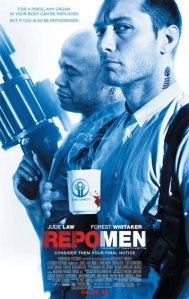It shouldn’t be a surprise that this movie features political wheeling, dealing, and backstabbing. With a title that refers to the betrayal of Julius Ceaser, “Ides of March” is interesting, intelligent, and provocative. While it is entirely fictional, it provides insight into the American political process, (and really reminded me of the book “Game Change,” because I came away from both thinking that all the decisions are really made by a select few, behind closed doors, bargaining over circumstances that the general public is never aware of.) It is certainly worth watching, for mature audiences.
One of the perspectives that I took away from this movie was how incredibly difficult it is for politicians to remain uncorrupted, when they are surrounded by so many people willing to make crooked deals and blackmail them for their own gains. Although, I think I can offer a pretty good hint to any would-be political aspirers out there—it is probably a lot harder for people to blackmail you with your indiscretions if you don’t have any. ***SPOILER ALERT*** Gov. Morris says he doesn’t want to “play those games,” but ultimately, he does, and it’s because he slept with a woman who was not his wife. To quote the Govenor himself, “Integrity matters.” Yes, it does. It matters even when you think no-one is watching. That’s the very definition of integrity. ***END SPOILER***
The story is centered around young and talented campaign aide Steven, (Ryan Gosling). Steven says that he will do or say anything to win, “but I have to believe in it.” He’s legitimately inspired by and excited about the idea of his candidate, Democrat Governor Morris, (George Clooney), as President. He’s honestly convinced that it’s the best thing for the country. But at a certain point, that ceases to be his primary motivation. Oh, he still spouts it, maybe even in part to convince himself. But he’s clearly, clearly taking actions that are motivated by his own self-seeking desires. The story may be told against a political backdrop, (so we get a lot of rhetoric spouted by Morris, some of it laughably simplistic, such as an assertion that terrorism will stop if America simply stops buying foreign oil,) but it’s really a story about one man’s descent into ever-murkier moral waters. Director George Clooney said as much himself:
”I don’t really find it to be a movie about politics,” says Clooney, who co-wrote the script — based on Beau Willimon’s play Farragut North — with producing partner Grant Heslov. ”It’s about a guy doing anything to win at the cost of his soul. Those are universal themes you could play with in any genre or in any workplace. It’s just that the political arena is so much fun to work in.” –EW
At one point, Steven dismisses a junior campaign staffer, and when the decision is questioned, he responds, “Because you f–ked up! This is the big leagues, it’s mean. When you make a mistake, you lose the right to play.” But when Steven himself confesses that he “made a mistake,” he’s asking for himself to be given a chance, but is told, “No, Steven, you didn’t make a mistake, you made a choice.” It’s a very clear theme throughout this film that choices, and actions, have consequences, and one person’s choices may drastically affect another person’s.

Steven describes their negative campainging strategy as "we do research, we feed it to the press and see if it sticks."
***HUGE SPOILER ALERT*** Steven discovers that Gov. Morris impregnated an intern, and she is now asking for money to help get an abortion. He ‘helps’ her, in order to protect the Governor’s campaign, but he has no regard for her emotional needs. She believes, (with good reason, because he is in fact willing to do it, and bartering to do it at the very moment she finds out,) that he is going to tell the press about her affair, pregnancy, and abortion, because she hears he has been fired and was proclaiming that he would “take everybody down with him.” He doesn’t contact her, he doesn’t answer her calls, and she kills herself out of desperation. Now I am not saying that he is totally responsible for her suicide, but I think that even he realizes his actions directly affected her decision. He f–ked up. Actions have consequences, see? And although he is sobered by her death, instead of altering his course, he chooses to leverage her demise for his own gain, just like he is willing to manipulate everything and everyone else in his life if it can advance his own career. It’s so tragic, both what she does to herself and what he does to his own soul. It’s also very well-acted, and well-written! When Steven discovers that he was played by the competing campaign just to take him out of play, he shouts in frustration, “this is my life that you’re talking about,” completely oblivious to the fact that his own selfish, manipulative games are literally devastating someone else’s life. ***END HUGE SPOILER***

The Govenor at one point says, "Every time I draw a line in the sand and then move it...fundraisers, union deals, negative ads...I can't on this one." But will that prove to be a stance he can maintain?
This movie shows us almost exclusively behind-the-scenes campaign action, but it doesn’t really need to give us the view of how this is being portrayed to the everyday folk (through the newspapers and talking TV heads) because we’re already so familiar with this circus. We’re seeing a version of it play out in real life right now. It just makes you wonder about how much goes on behind the scenes in every other election, that most people may never hear about. Or if we do hear a scandal, is it some campaign manager like Steven or Duffy leaking it to the right sources, dredging dirt up by playing dirty, raising just enough doubts that the opponents can’t quite shake them, or purposefully sabotaging the other sides’ staff? It’s not hard to imagine. But it’s also hard not to believe the allegations after so many politicians before have turned out to be guilty.
This is ultimately a tragic movie–a terrifically well-written, well-acted movie, but a tragedy nonetheless—about a man who compromises. Everything. To “win.” This film’s bleak ending echoes the wisdom of Jesus, who said, “what good will it be for someone to gain the whole world, yet forfeit their soul?” (Matthew 16:26).









